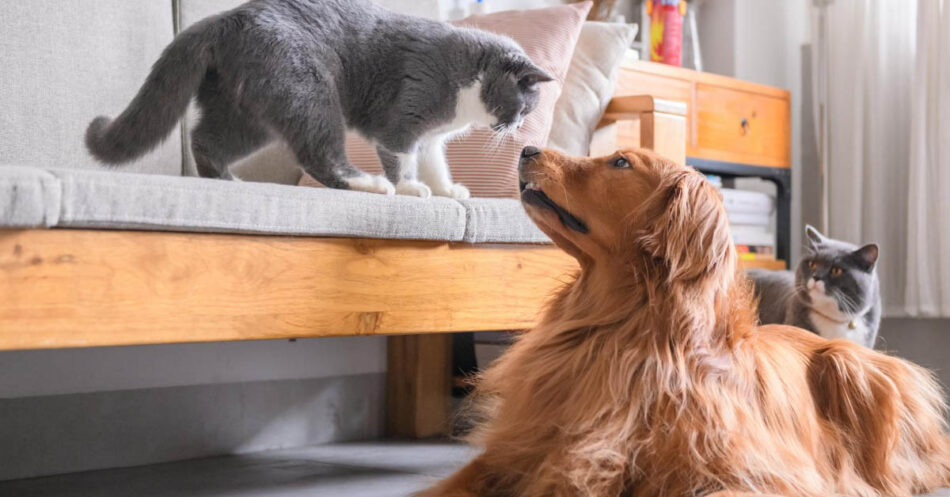
4 Ways You and Your Pet Can Overcome Anxiety Together
Take a second to remember the last time you had a stressful day. Maybe you got caught in traffic on the way to an appointment. Or perhaps you had to give a presentation at work. Or possibly, your hairdresser got a little too carried away with the scissors.
Whatever it was, think about how it made you feel. If you’re like many people, your muscles tensed, your heart started pounding, your breathing became more rapid and you couldn’t wait for the situation to pass.
Of course, we’re not the only ones this happens to. Stress takes the same type of toll on our animal companions. Their triggers may be different, but a visit to the vet is undoubtedly just as traumatic for them as a work presentation is for us.
My first real experience with pet anxiety was with our late Labrador, Buck. What began as general restlessness during thunderstorms escalated into excessive, destructive and dangerous behavior. He chewed through drywall (down to the two-by-four wooden studs), mangled doorknobs and shredded wood molding—all in an attempt to break out of the house. He even escaped a metal dog crate by somehow twisting the bars until the latch released!
Buck’s anxiety about storms was irrational, but when you think about it, so are many human stressors. Just because we know our fears aren’t rational doesn’t make them any easier to deal with. In fact, it can make it harder!
Luckily, there are things you and your pet can do together to make a life a little less stressful for you both.
Pin me!
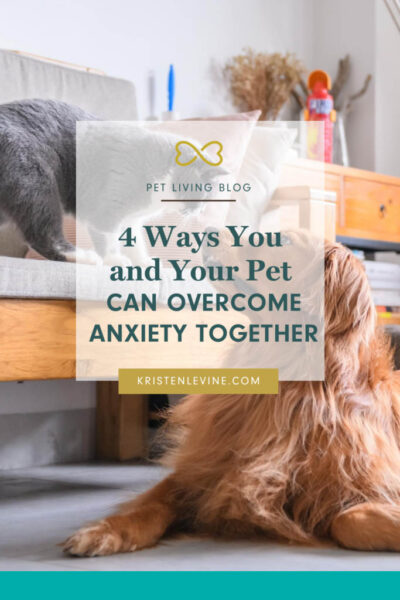
Exercise
Leashing up your dog and heading out the door for a stroll can be a major stress-buster for both of you. According to the Anxiety and Depression Association of America, exercise is “considered vital for maintaining mental fitness, and it can reduce stress.” The organization also notes that physical activity releases endorphins, the “feel good” hormones.
If your pet is anxious, or you know you have a trigger event coming up (fireworks, anyone?), take your dog for an extended walk or initiate a long play session with your cat. The extra exercise will tire them out and help them relax when things get stressful.
Laughter
There’s really nothing that can reduce stress like a big belly laugh with friends or family. But did you know that humans aren’t the only ones who can laugh? Researchers have discovered that during play, dogs display a type of rhythmic panting that is akin to human laughter.
As with humans, it appears that canine laughter can be contagious. In fact, one researcher – Patricia Simonet of Sierra Nevada College in Lake Tahoe – found that imitating “the laugh panting sounds of dogs seemed to have a positive effect on the animals hearing it.”
So go out and play with your dog! Chase him around the yard or do something else he thinks is fun. Before long, you’ll probably both be laughing your tails off.
Connect Through Touch
How many times have you caught yourself petting your dog or cat absentmindedly? There is just something soooo soothing about scratching their ears or rubbing their belly, isn’t there? And it’s not just your imagination. Studies have revealed that cuddling with a pet reduces blood pressure, heart rate and respiratory rate.
It appears that animals may also benefit from the effects of touch, helping them feel calmer as well. Just stroking your pet can make him feel better, but if you want to take it a step further, look into classes for animal-specific massage or Tellington Touch (TTouch) therapy. Simply touching your pet may not “cure” their anxiety, but at the very least, it will make both of you a bit more relaxed and strengthen the bond between you.
Ask for Help
Sometimes, despite our best efforts, we simply can’t handle stress and anxiety alone. That’s why it’s important to know that it’s okay to reach out and ask for help, either for you or your pet.

With our dog Buck, we knew we were in over our heads. He was clearly suffering and we were desperate to help him, so we sought the advice of a board certified veterinary behaviorist. Under her guidance, we put together a plan that combined anti-anxiety medication and behavior modification including relaxation and desensitization techniques.
Thanks to great specialists and our own dogged determination, we successfully managed Buck’s anxiety in his last years. Some of my fondest memories of Buck include the relaxed look on his sweet face as he lounged in the pool or during an acupuncture session.
I certainly owed this to him because he helped me manage my own stress for many years—the kind that comes with starting and running my own business.
We helped each other along the way. You and your pet can do the same.


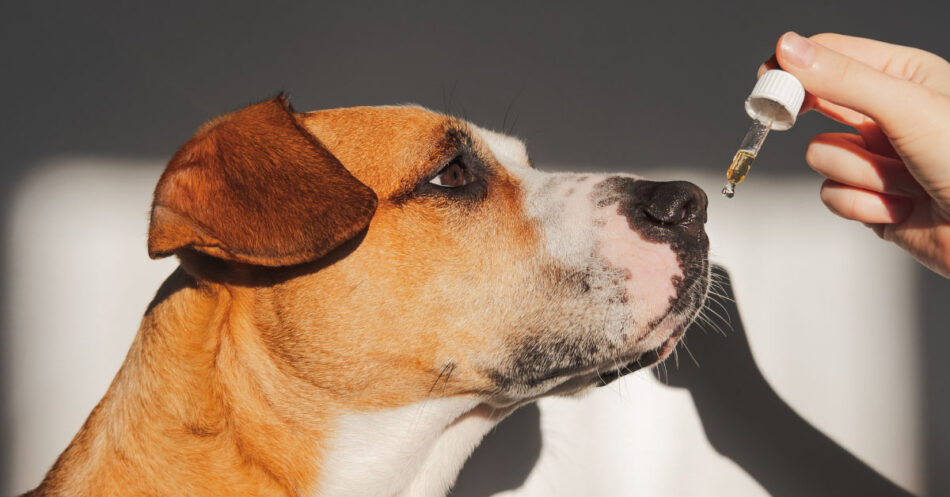

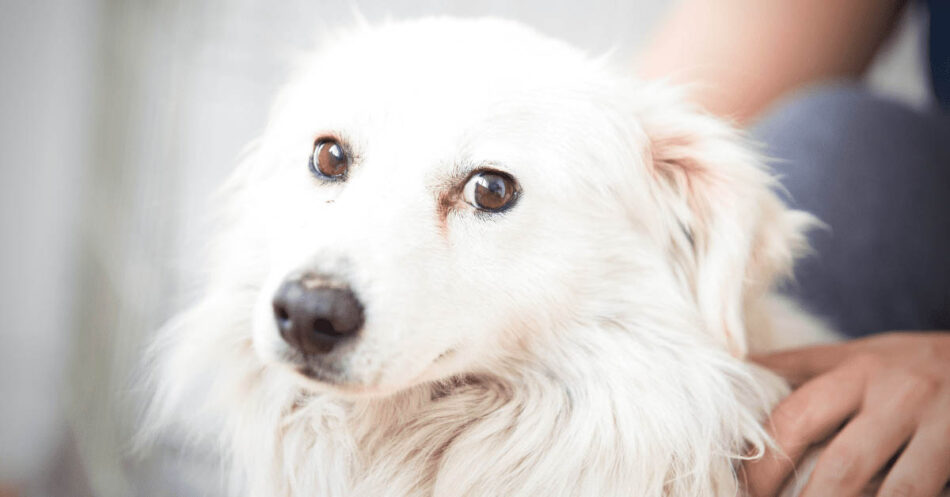
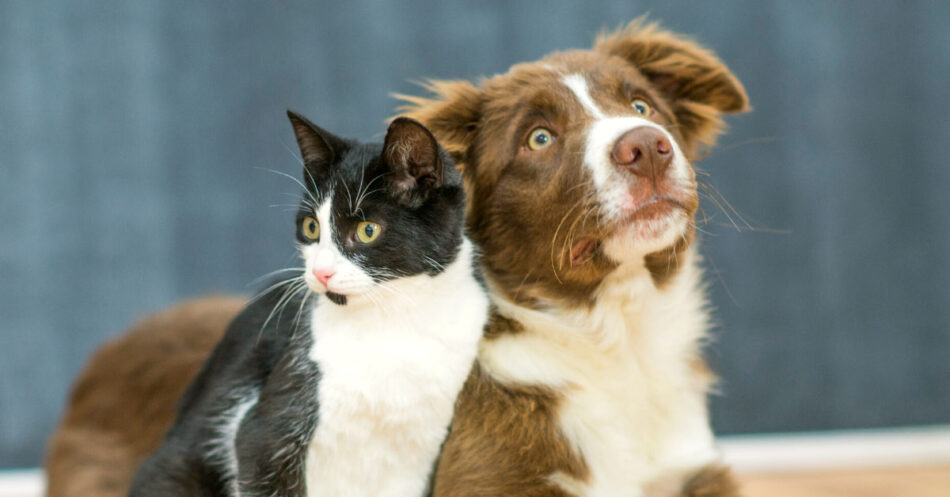
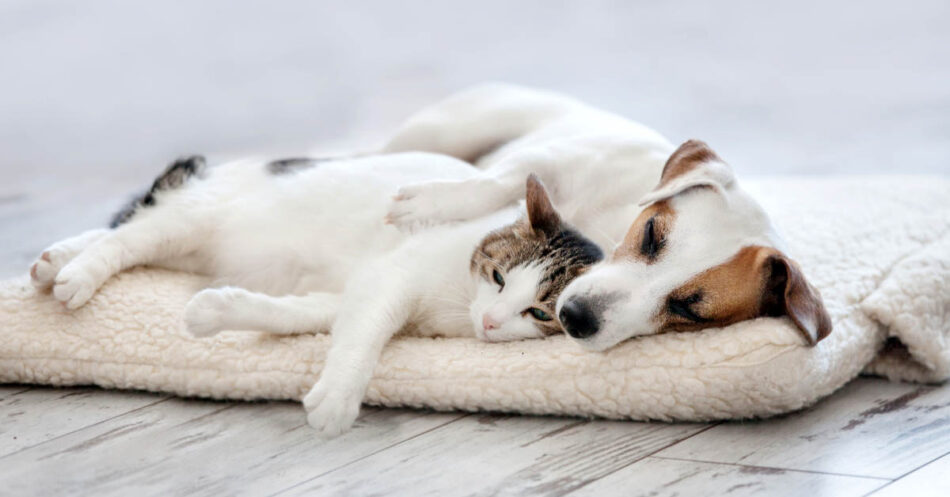
Very sweet. I enjoyed reading this. Thank You.
Thank you Jolene!
That’s so true. Pets are highly intuitive and sensitive. After observing them, I’ve noticed that in times of upcoming change or stresses about to come, my cats suddenly move in closer and lie on my lap or play with something to make clowns of themselves, to divert my attention away from worrying. They are amazing, each and everyone ever owned and loved. I take their warning seriously and trust them with my life, and they trust me with their well-being and know they are adored. In short, if you are looking for an ultimate solution to your mental and emotional disturbance, then adopting an ESA will help you.